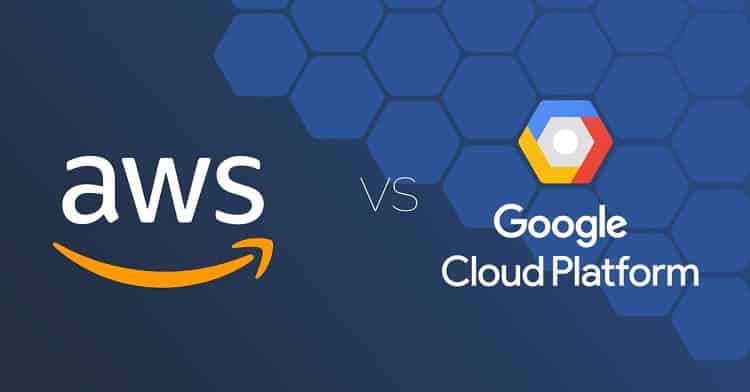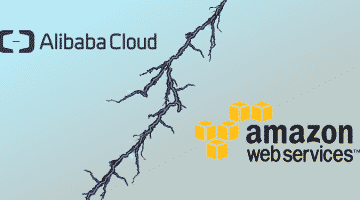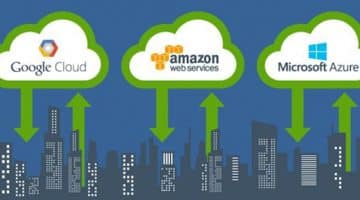There is fierce competition to get leadership in cloud computing. The three main companies in the competition are Amazon, Microsoft, and Google. Their respective products are Amazon Web Service, Microsoft Azure, and Google Cloud. Today, we are solely going to concentrate on AWS and Google Cloud.
AWS is the leader with the vast set of tools, and the capabilities are limitless. But it is due to its cost structure and its main focus on public cloud computing instead of a hybrid or private cloud that people always look for alternatives. Google Cloud is considered to be the underdog in the competition, but it is gaining market share rapidly. Google is employing all the different technologies such as deep learning, artificial intelligence, machine learning, and analytics to attract corporate customers. Here are the striking differences between Google Cloud and AWS in the current scenario.
Virtual Machines –
The first point of difference is the handling of virtual machines. Google Cloud’s VM is KVM while that of AWS is Xen. There are pre-defined configurations with definite virtual CPU, network, and RAM in both cases. But there are differences in naming convention like what is referred to as machine types in Google Cloud, the same is labeled as instance types in AWS.
You can equip instances in Google with 160 virtual CPUs and 3844GB of RAM. Coming to AWS, the same can be equipped with 128 virtual CPUs and 3904GB of RAM. This is a general instance, and there are so many different types of instances like shared, standard, and likewise. Google Cloud and AWS differ from one another in this space significantly.
Tools –
There is no doubt that AWS offers more tools to customers than Google Cloud. AWS has long lists of tools in each area starting from training, deploying, machine learning, superior interface, and there is a Lambda serverless computing service. On top of that, there is support from Alexa services and IoT messaging service. They so have artificial intelligence and machine learning based tools. They are useful for recognition of characters, objects, and images. The platform is super-friendly, and there is no need for learning AI programming to build train neural networks.
Coming to Google Cloud, AI, and machine learning have been given more priority. TensorFlow is an open-source platform for building machine learning applications very easily. It is currently the leading platform, which is why AWS is forced to add support for TensorFlow. Google Cloud offers numerous APIs for translation, speech, and various such modern features. There are also serverless services available to suit everyone’s need.
Storage –
AWS is s clear winner here too as it offers so many different storage services. There is simple storage service for objects, elastic block storage for blocks, and elastic file system for files. There is also a hybrid storage environment available, and they also offer physical hardware device. As far as the database goes, they have Aurora which is RDS, Dynamo NoSQL database, Redshift warehouse, Neptune graph database, and ElastiCache in-memory data store. There is a cheap option available named Glacier.
As far as Google Cloud goes, the storage services are limited just like tools. However, it covers all the necessities perfectly. The best part is that Google has a unified object storage service. There are various such options available that are quite similar to what AWS has in the hind side, but they have got more popular with Google Cloud due to easy operation.
Strengths and Weaknesses –
Google Cloud – It is designed specifically to run cloud-native businesses. It is easy portability, and the open-source technology is quite contemporary. There are flexible contracts available with discounts, and the price clarity is what users need. The weakness is that it is a late entrant and therefore, it will take a lot of time to lure the customers from AWS and Azure. The features are limited for the moment in comparison.
AWS – It is the leader, and therefore, it becomes an automatic choice. There are various types of offerings available to choose from as per your requirement. There is dedicated support available, and the overall service is better than the rest. However, you need some training to use it efficiently. The costing will be higher than Google Cloud, and too many options can be confusing as well.
If you are getting started, Google Cloud is better. If you are willing to shell out more money for better service and be with the leading with some training, you can go for AWS.




